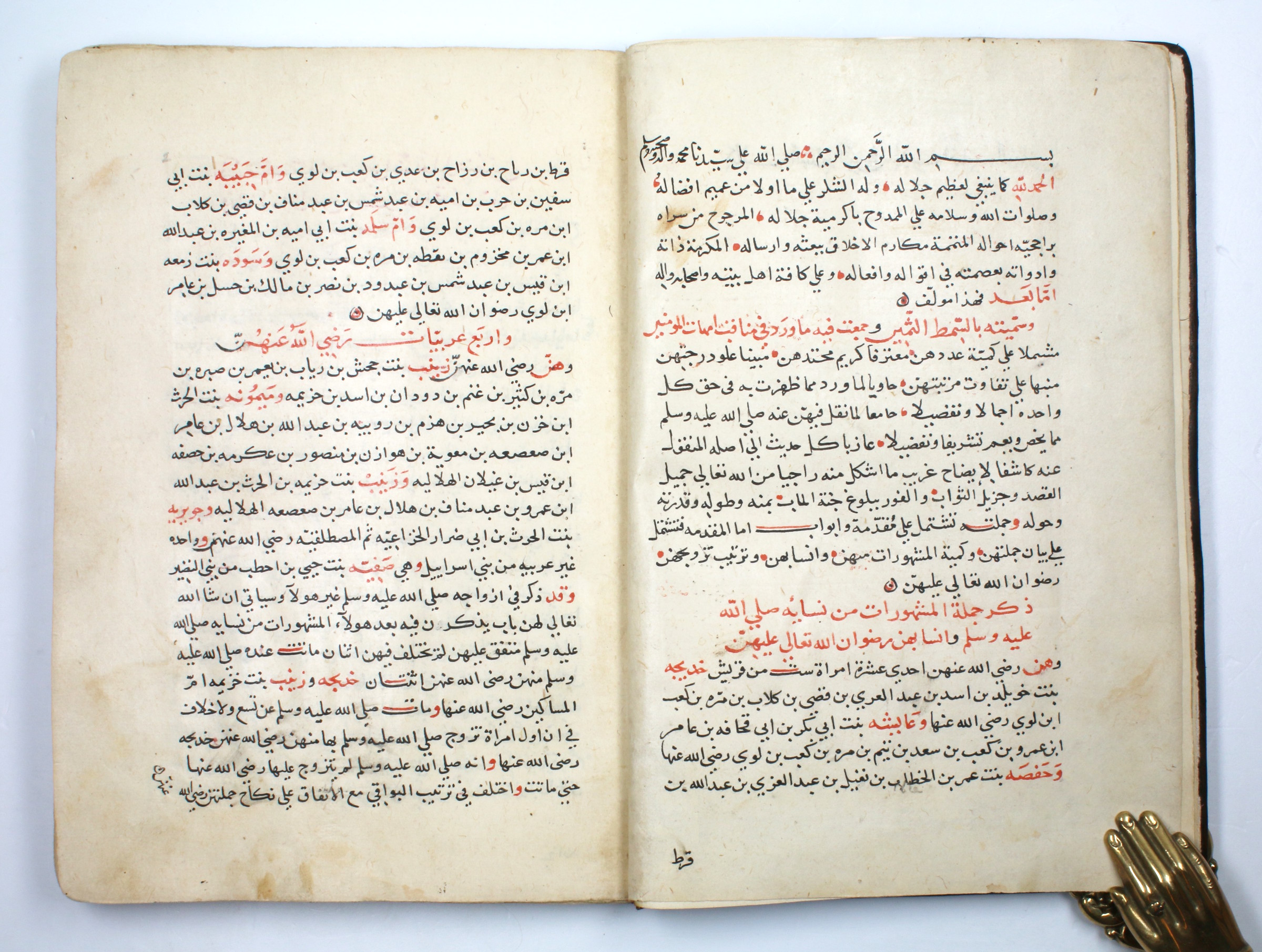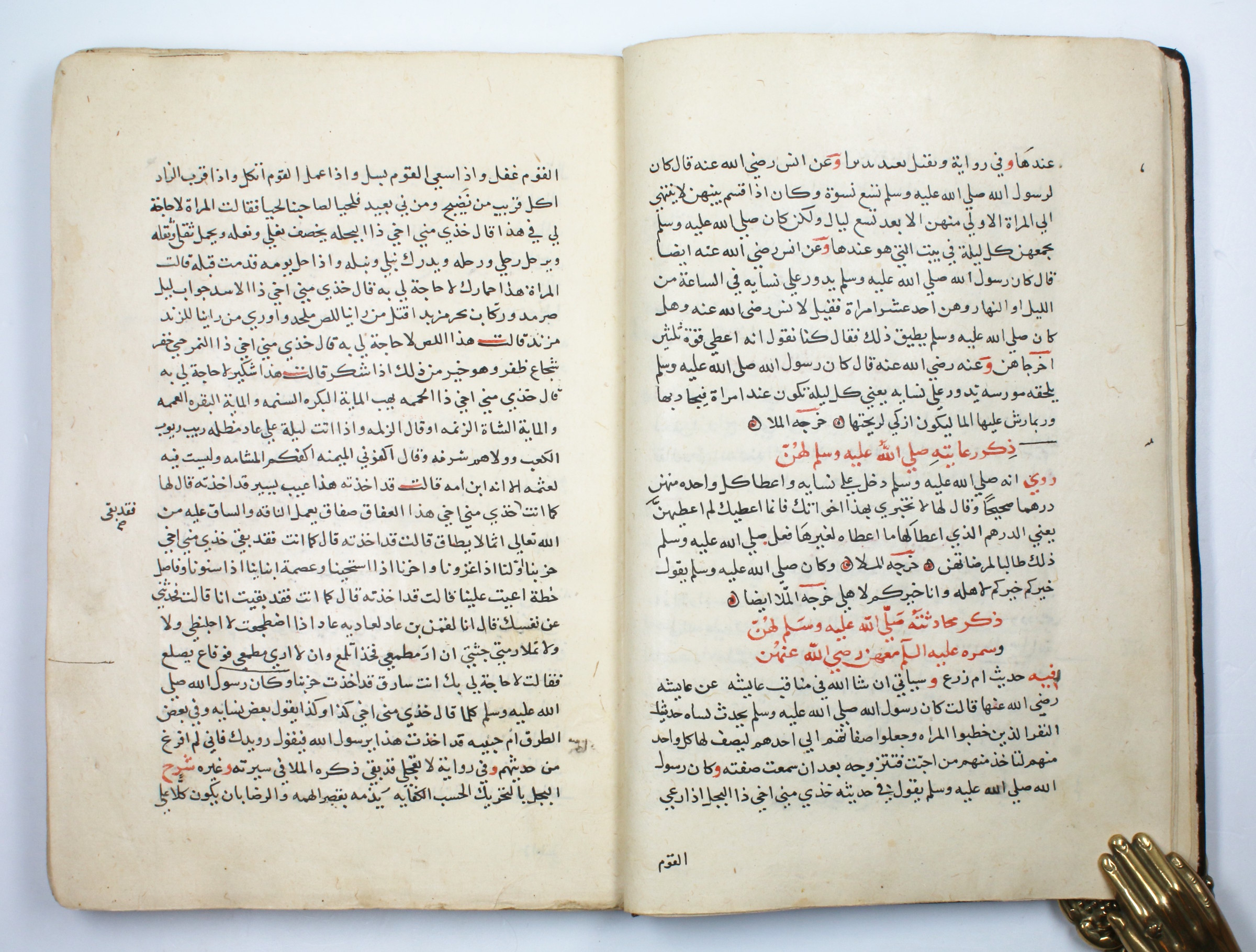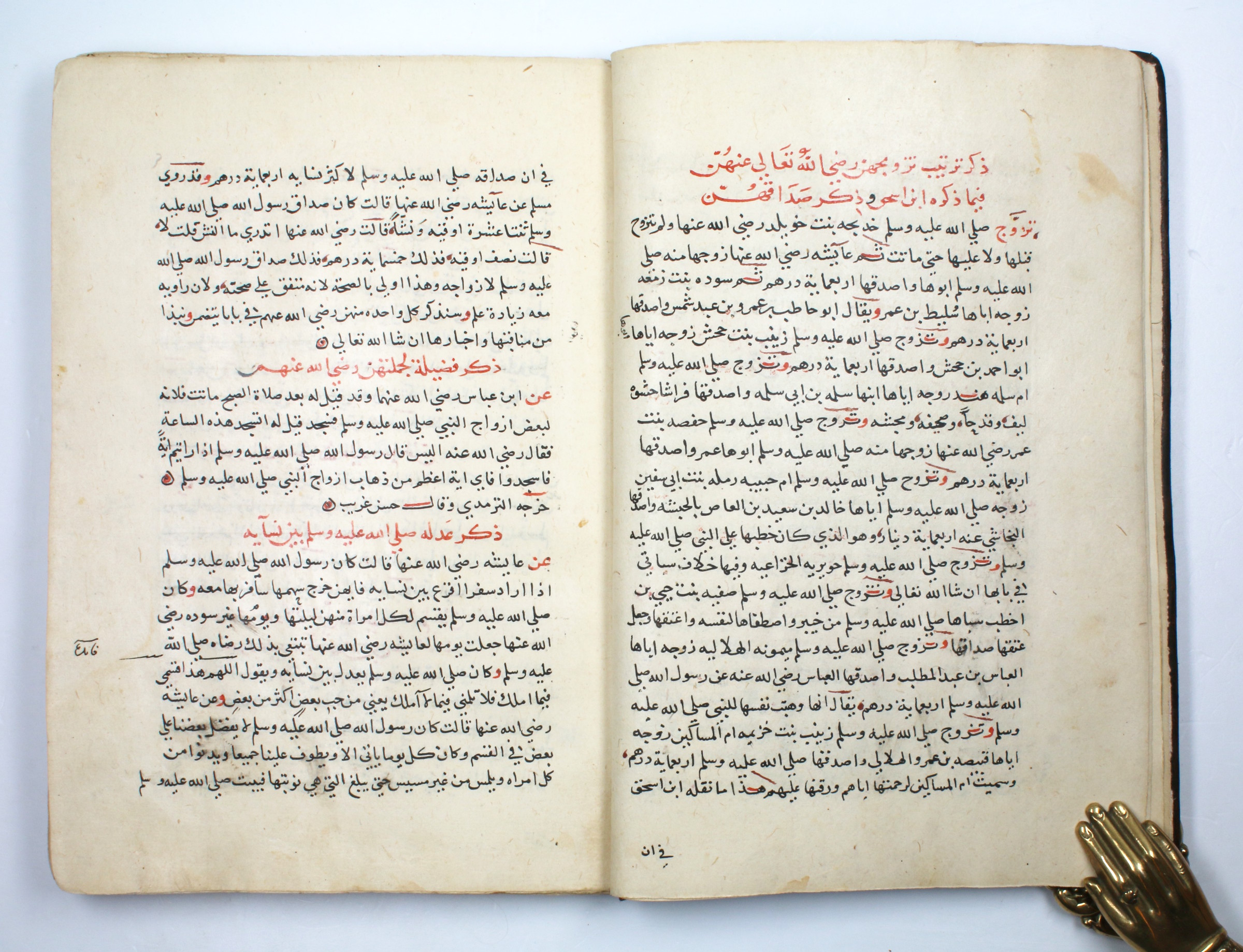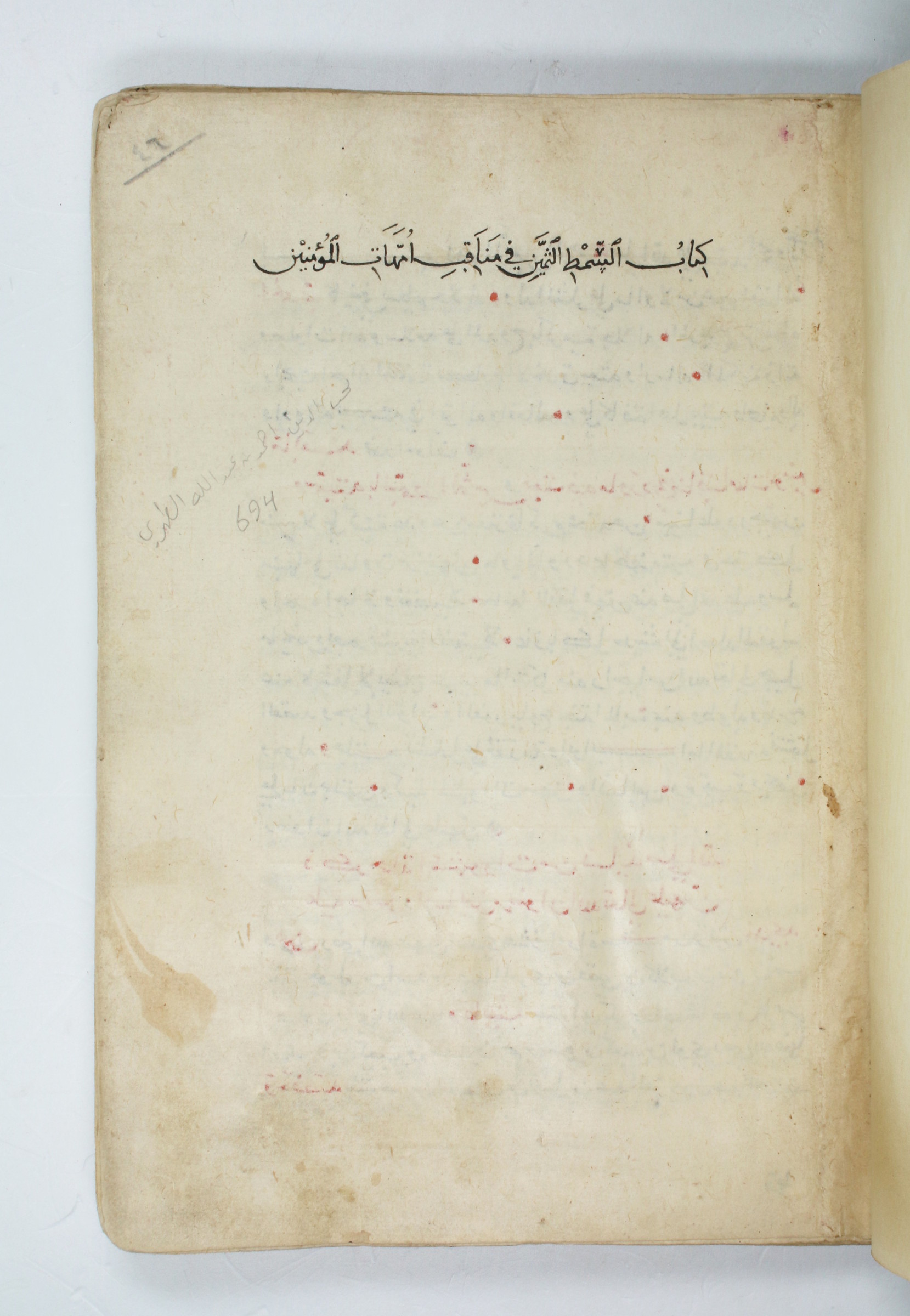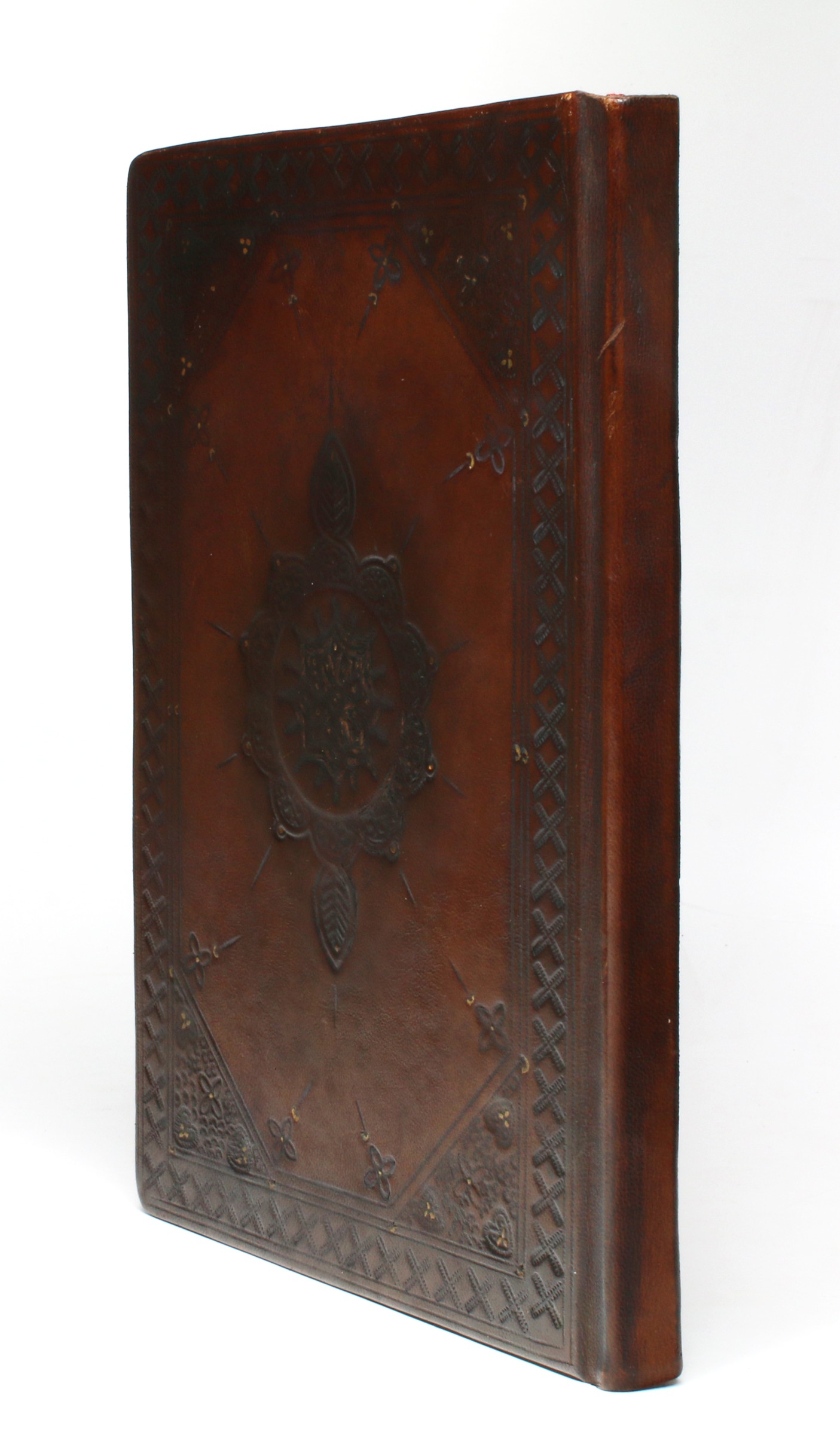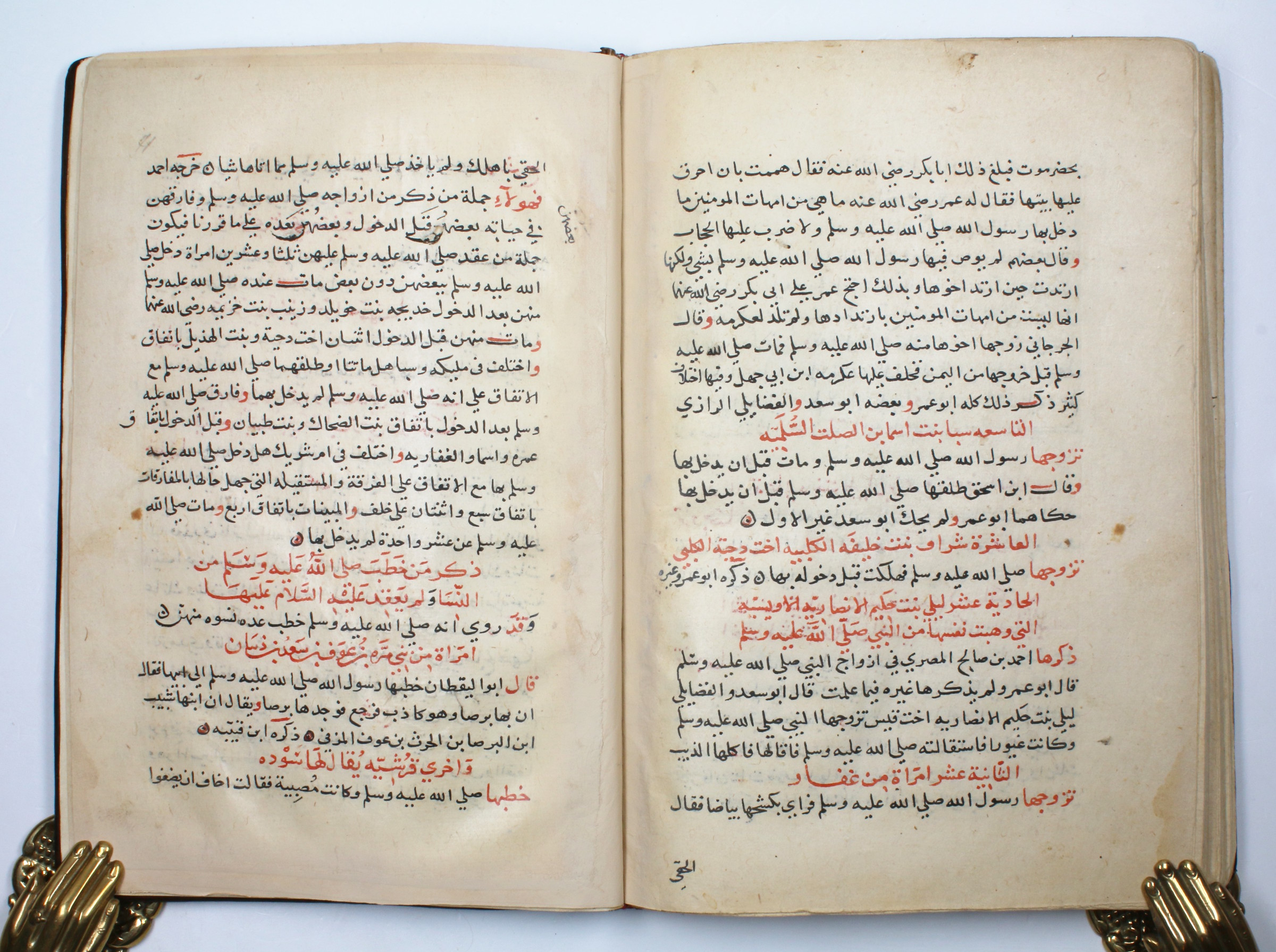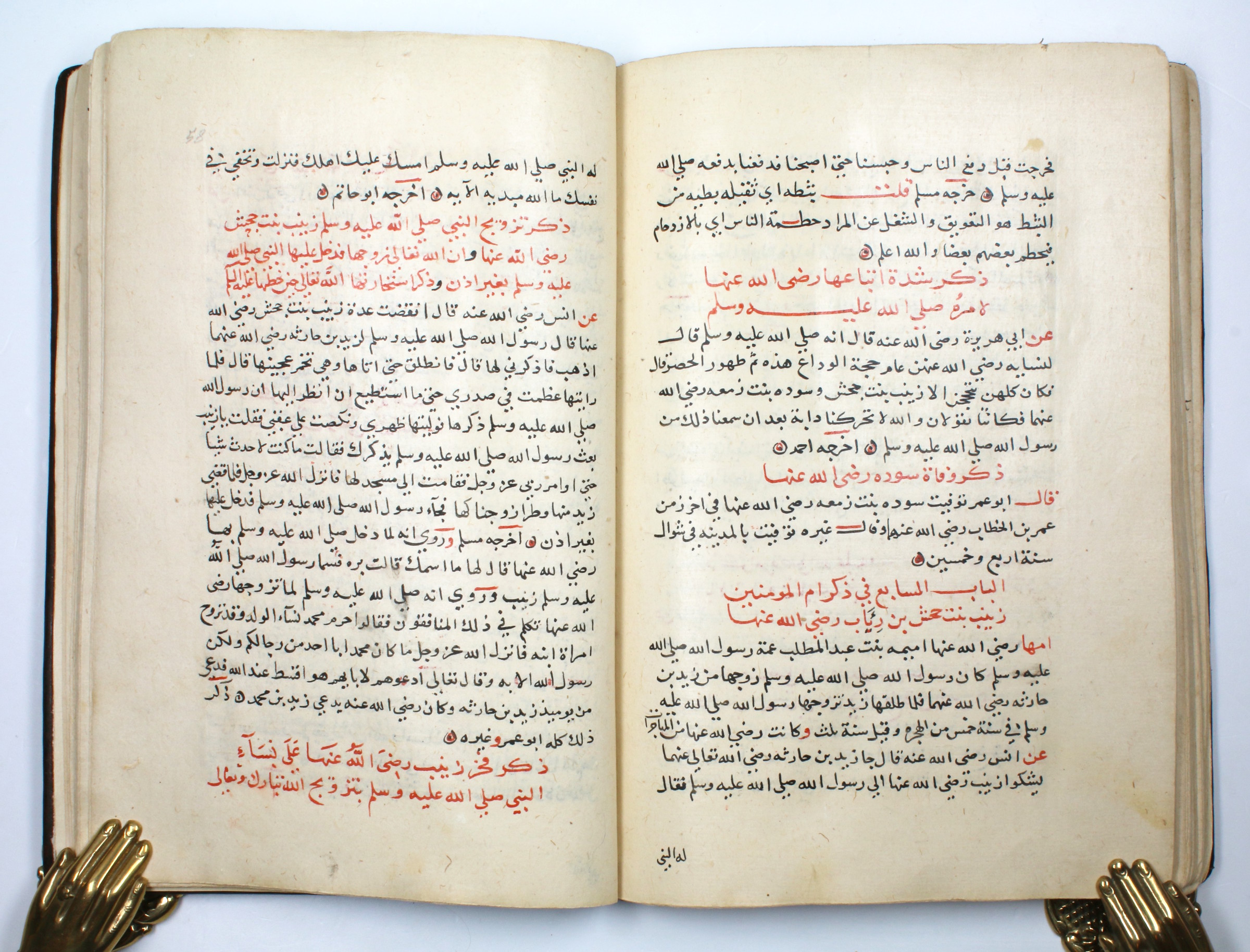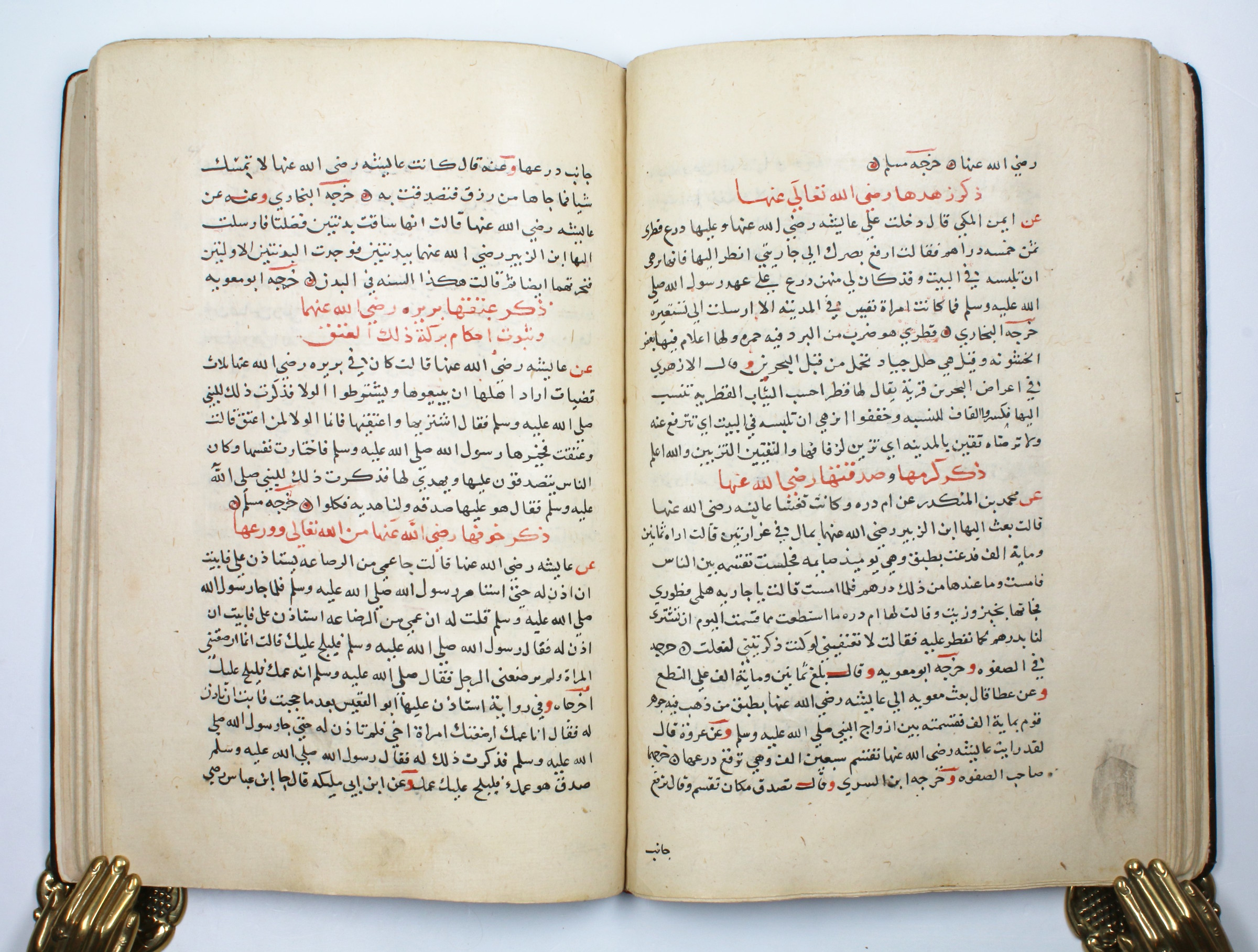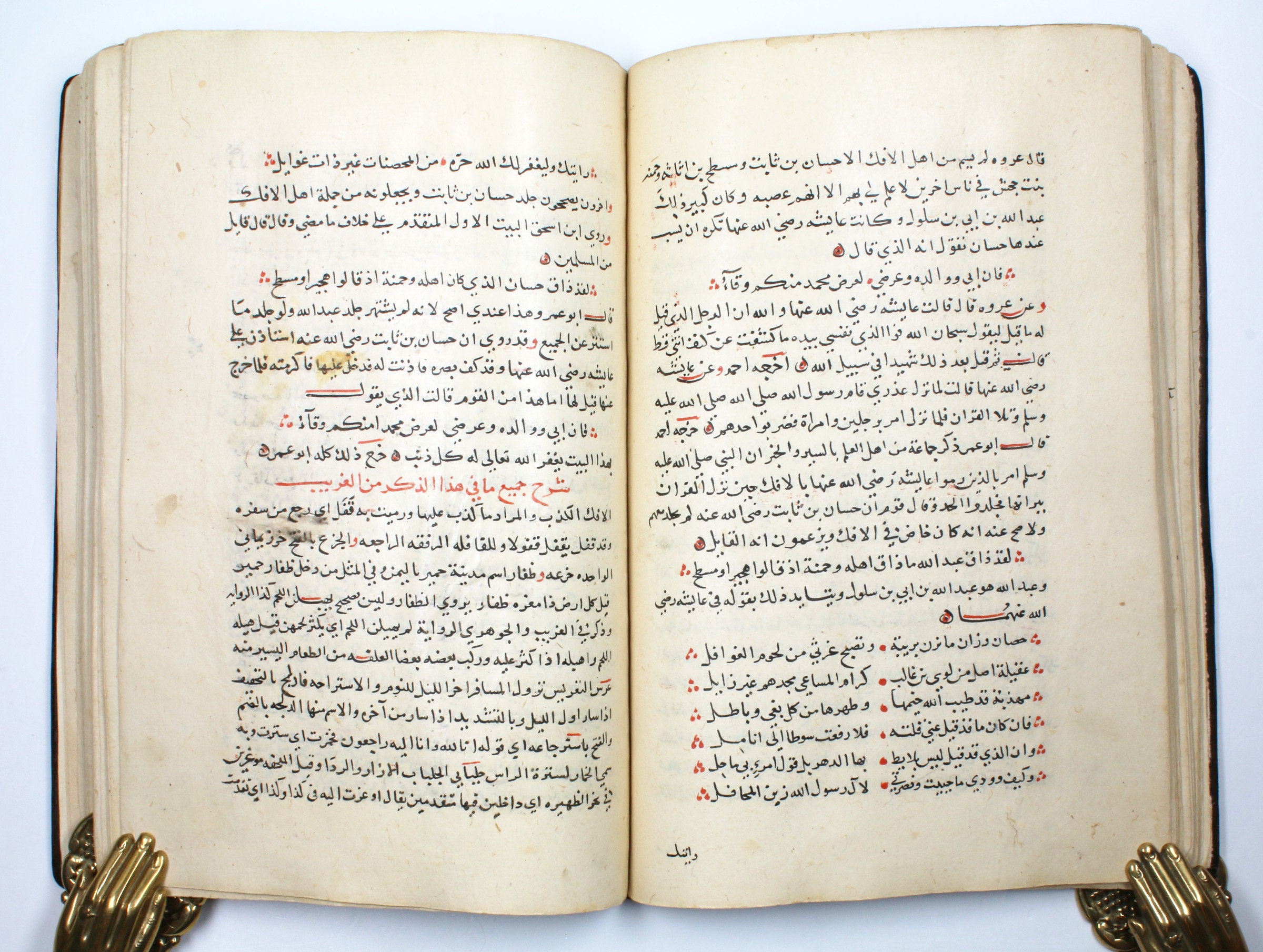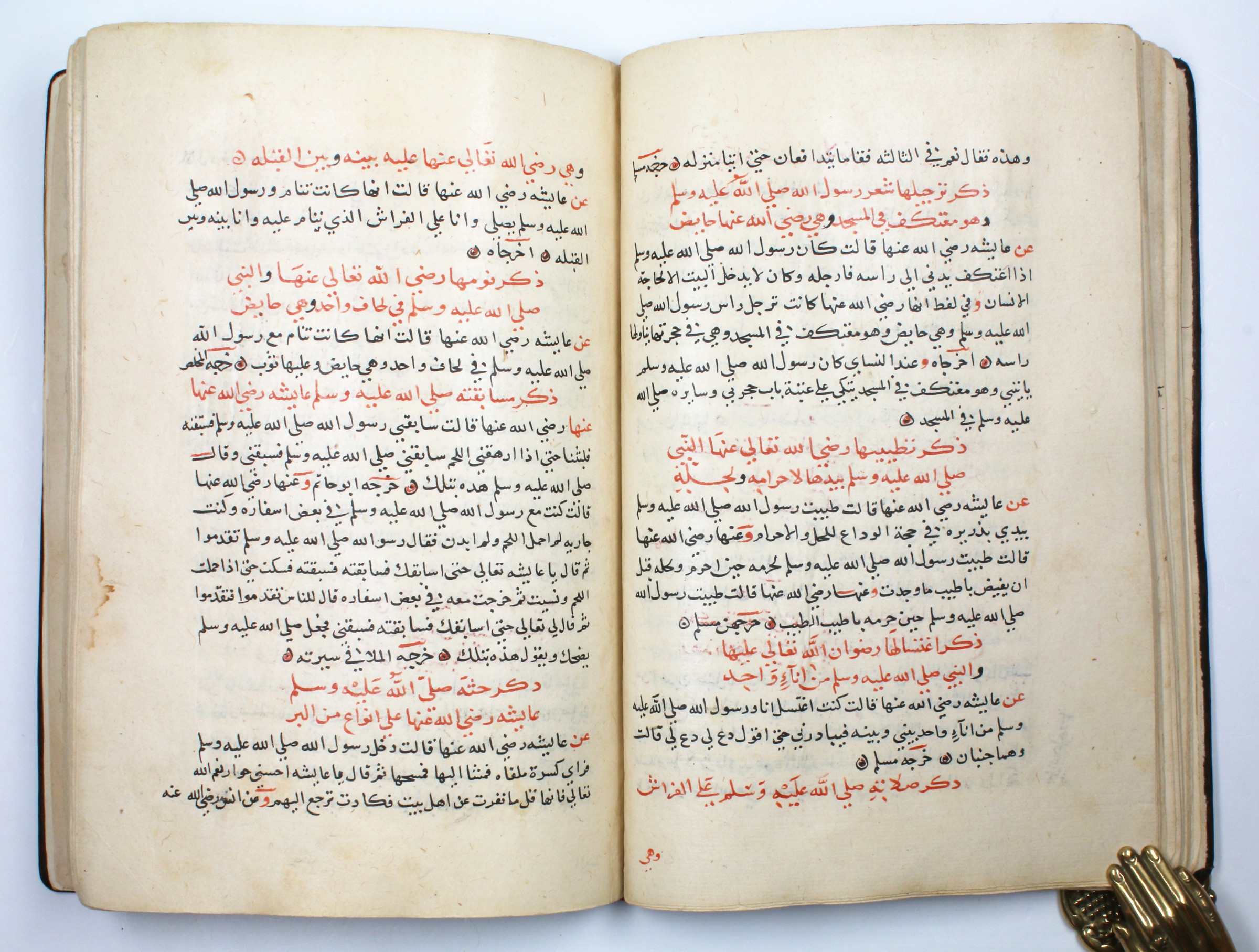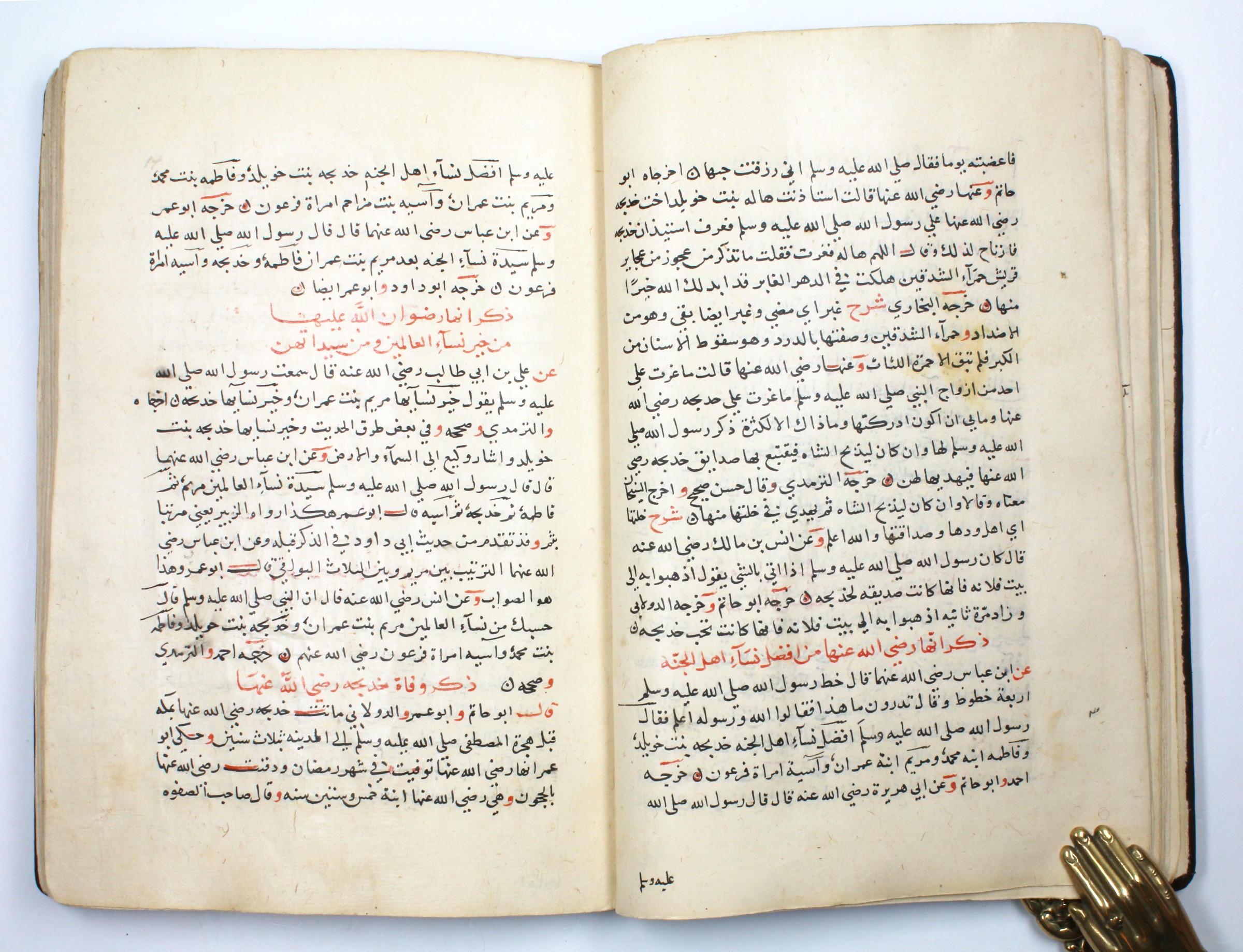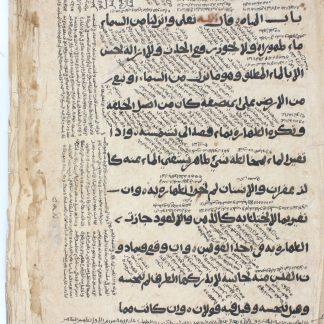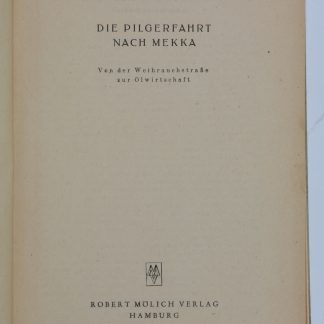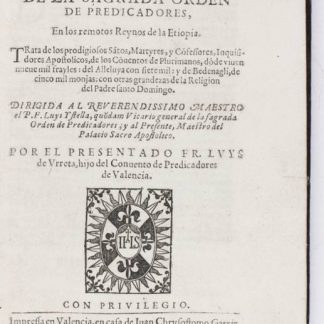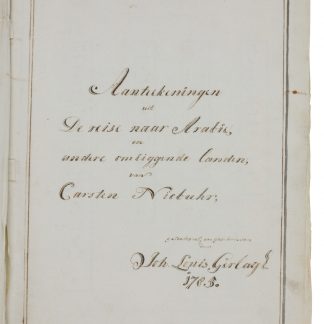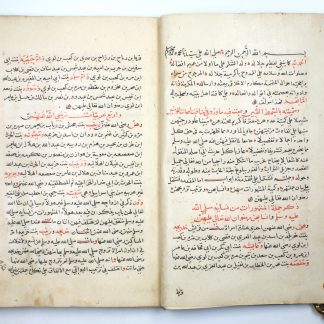The Mothers of the Believers
Kitab al-simt al-thamin fi manaqib Ummahat al-Mu'minin [The Precious Book on Excellence in the Virtues of the Mothers of the Believers].
Folio (185 x 269 mm). 73 ff. Arabic manuscript on polished oriental paper. Black naskh script with important words and phrases picked out in red. 20th century full brown calf, elaborately tooled in blind and highlighted with gilt.
€ 55,000.00
A very early manuscript of this work on the biographies of the wives of the Prophet Muhammad, copied in Mecca, just over 160 years after the author's death in the same city, by 'Ali bin Hasab Allah bin Muhammad al-'Izzi al-Makki al-'Ajlani on Thursday, the 16th of Dhu al-Qa'dah 861 AH.
The Shafi'i traditionist and jurist Al-Tabari (1218-95 CE) was considered "the greatest scholar of his century in the Hejaz" (Frédéric Bauden, in Encyclopaedia of Islam). Born in Mecca into a family who had recently settled there (his great grandfather had emigrated from Tabaristan in the 12th century CE), he was a prolific writer and teacher whose education benefited from the large numbers of Qur'anic scholars and students drawn to the Holy City for the Hajj or for their studies. He was considered particularly adept in hadith scholarship, and travelled and taught at home and abroad, particularly in Yemen.
The present manuscript is one of al-Tabari's important works, discussing the virtues of the Prophet's wives. Formally referred to by the title of "Ummahat al-Mu'minin" ("Mothers of the Belivers"), each wife of the Prophet has an important role in Muslim literature, as their lives take on both historical and theological significance. The Prophet Muhammad is generally considered to have married ten women (though the number was occasionally debated by Qur'anic scholars in al-Tabari's time); each of these women had a distinct contribution in witnessing or personally promoting the development and dissemination of the Muslim faith. The first printed edition of this text appeared in 1928 at Aleppo.
Remarkably well-preserved, written in a very tidy black naskh script with only very subtle paper repairs; text bright and clean.
Encyclopaedia of Islam, 2nd ed., vol. X, p. 16.

